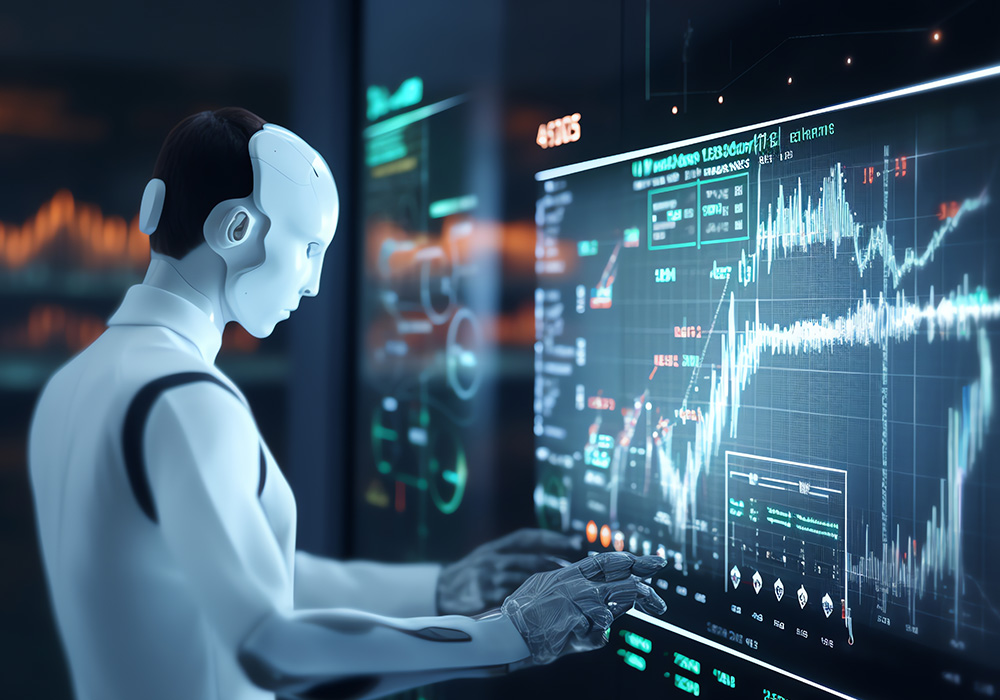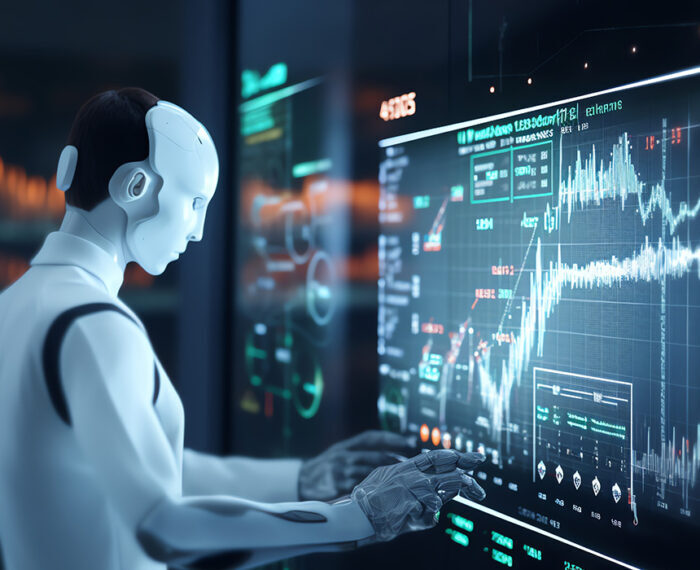Artificial intelligence (AI) has emerged as a game-changer in the world of trading, revolutionizing the way financial markets operate and providing traders with powerful tools to analyze data, identify patterns, and execute trades with precision and efficiency.
From algorithmic trading to machine learning-based strategies, AI has become an integral part of the trading landscape, reshaping market dynamics and driving innovation. In this article, we’ll delve into the role of AI in trading, its impact on financial markets, and the future of AI-powered trading strategies.

Understanding AI in Trading
AI in trading encompasses a wide range of techniques and technologies that leverage machine learning algorithms to analyze vast amounts of market data, identify patterns, and make trading decisions. These algorithms can analyze market trends, sentiment analysis, news articles, social media feeds, and other sources of data to generate trading signals and insights.
AI-powered trading systems can execute trades with lightning speed, reacting to market conditions in real-time and capitalizing on opportunities that may be imperceptible to human traders.
Impact of AI on Financial Markets
The integration of AI into financial markets has had a profound impact on market dynamics, liquidity, and efficiency. AI-driven trading algorithms have contributed to increased trading volumes, reduced transaction costs, and improved price discovery.
Additionally, AI has facilitated the development of new trading strategies and investment products, such as smart beta funds, factor-based investing, and quantitative hedge funds. However, the proliferation of AI in trading has also raised concerns about market stability, fairness, and the potential for algorithmic trading to exacerbate market volatility.

The Future of AI-Powered Trading Strategies
As AI technology continues to evolve, the future of AI-powered trading strategies looks promising. Advancements in machine learning, natural language processing, and deep learning are enabling traders to develop more sophisticated algorithms capable of analyzing complex market data and adapting to changing market conditions.
Additionally, the rise of big data and cloud computing has provided traders with access to vast amounts of data and computing power, enabling them to develop and deploy AI-driven trading strategies more efficiently. Looking ahead, AI is expected to play an increasingly central role in the trading ecosystem, reshaping how trades are executed, strategies are developed, and risks are managed.
In conclusion, AI has emerged as a transformative force in the world of trading, revolutionizing financial markets and empowering traders with powerful tools to analyze data, identify patterns, and execute trades with precision and efficiency.
From algorithmic trading to machine learning-based strategies, AI has become an integral part of the trading landscape, reshaping market dynamics and driving innovation. As AI technology continues to evolve, the future of AI-powered trading strategies looks promising, with advancements in machine learning, big data, and cloud computing paving the way for new opportunities and insights in the world of finance.

